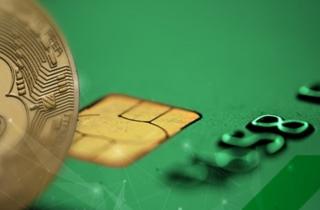Best Decentralised Crypto Wallets
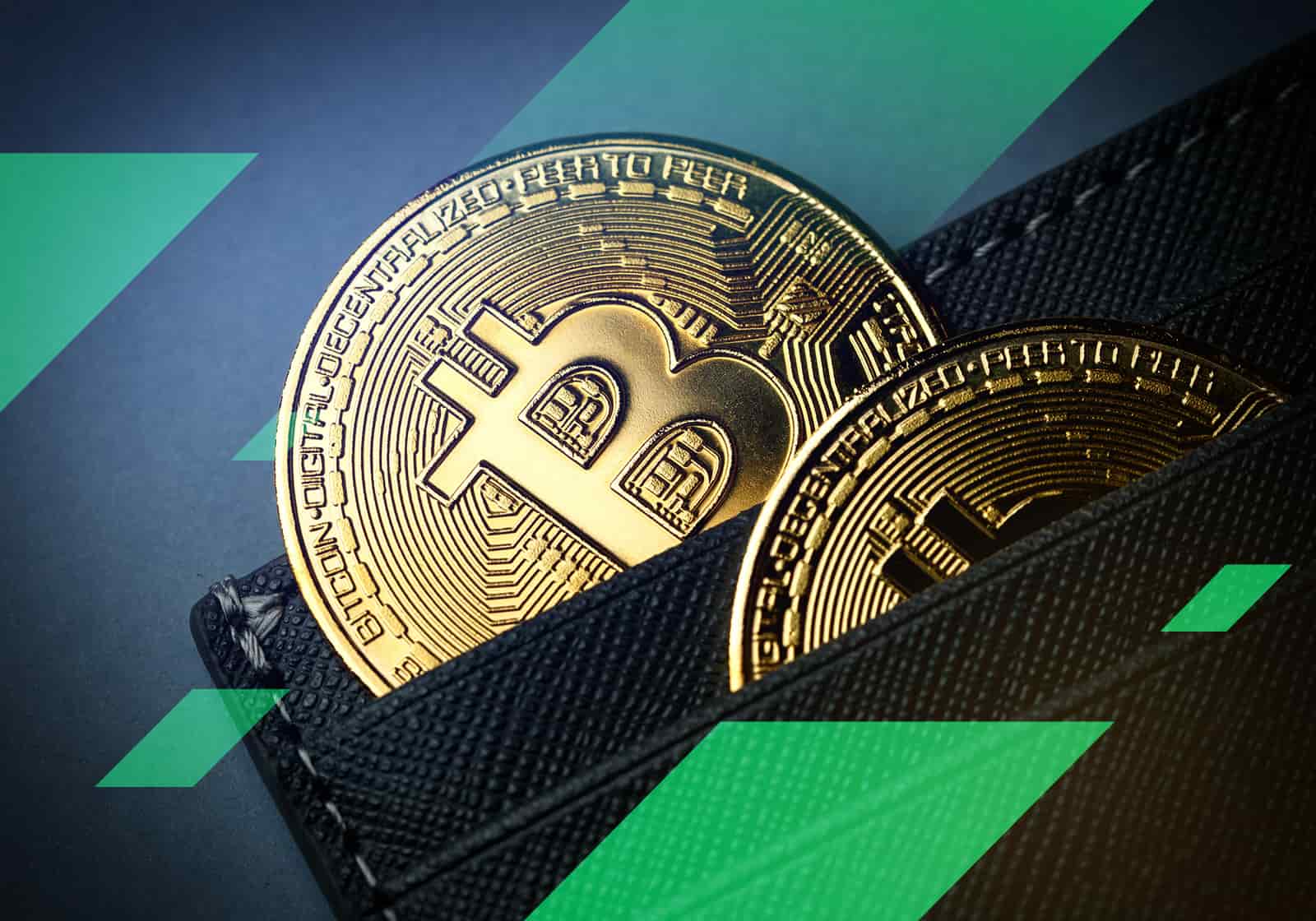
As the adoption of cryptocurrencies continues to increase, so does the need for secure and trustworthy wallets to store them. Decentralised crypto wallets have become a popular choice for those seeking complete control over their assets without relying on a third party. But what is the best decentralised crypto wallet? In this article, we'll explain what a decentralised crypto wallet is and explore some of the top decentralised crypto wallets available. We'll help you make an informed decision when choosing the one that best suits your needs.
What is a decentralised crypto wallet?
A decentralised crypto wallet, also known as a non-custodial wallet, is an application or device that allows users to store private and public keys without trusting a third party. Unlike centralised or custodial wallets, which are controlled by third-party entities and typically require users to share their private keys and sometimes other sensitive information, decentralised wallets give users full control over their funds and private keys.
Difference between centralised and decentralised wallets
While both centralised and decentralised crypto wallets perform the same function of storing and managing cryptocurrency, they have a number of important differences.
- Control. With a centralised wallet, the user isn't in full control of their private keys, and the wallet provider has access to those. In contrast, a decentralised wallet gives the user full control of their private keys and eliminates the need for a third-party intermediary.
- Security. Centralised wallets are more prone to hacking and theft and are more vulnerable to attacks due to their infrastructure. Decentralised wallets are considered more secure because they eliminate the single point of failure.
- Privacy. Centralised wallets typically require users to provide personal information to comply with regulations, while decentralised wallets don't require providing any.
- Recovery of funds. Lost access to a centralised wallet can usually be restored. In contrast, access to a decentralised wallet can't be restored if the private key or seed phrase is lost.
- User-friendliness. Centralised wallets are usually more convenient and user-friendly and often have a wider range of features. In addition, users of centralised wallets normally benefit from professional technical support.
The differences between centralised and decentralised wallets
Centralised | Decentralised | |
Control | Third party | User |
Private keys | Are under the wallet provider's control | Only users have access to their private keys |
Security | Somewhat secure | Very secure, especially the cold ones |
Data storage | Data is stored on the provider's server | No central database |
Privacy | Low | High |
Account creation | KYC and AML procedures | No KYC and AML procedures |
Recovery of funds | Possible | Not possible if private key or recovery phrase is lost |
User-friendliness | Usually more user-friendly | Usually less user-friendly |
What is the best decentralised wallet for crypto?
Each cryptocurrency wallet has its own set of benefits. Therefore, there's no single answer to the question, "What crypto wallet is the best?" To find the option that is best for you, answer a few questions:
- How large is the sum of money you're going to keep in the wallet? The larger the amount, the safer the option you should choose, even at the expense of convenience. For large sums, it's worth buying a hardware wallet.
- How often are you going to make transactions? For frequent crypto transactions, one of the mobile software wallets or even an online wallet is more suitable.
- What specific cryptocurrency are you going to keep in your wallet? Different wallets support different cryptocurrencies.
- What features do you need in a wallet? Different wallets have different sets of features. Which ones do you plan to use?
In addition, you may have your own requirements for a wallet that aren't included here.
5 Best software decentralised crypto wallets
There are many decentralised crypto wallets out there. We've selected 5 among the best.
MetaMask
It's one of the most popular cryptocurrency wallets at the moment and is available in two versions: a browser extension and a mobile app. The wallet has an attractive and user-friendly design. MetaMask is considered one of the best wallets for working with decentralised applications (dApps) hosted on the Ethereum blockchain. It can also be used to connect to apps on other blockchains if configured accordingly. The disadvantage is that it can't be used to directly store Bitcoin.
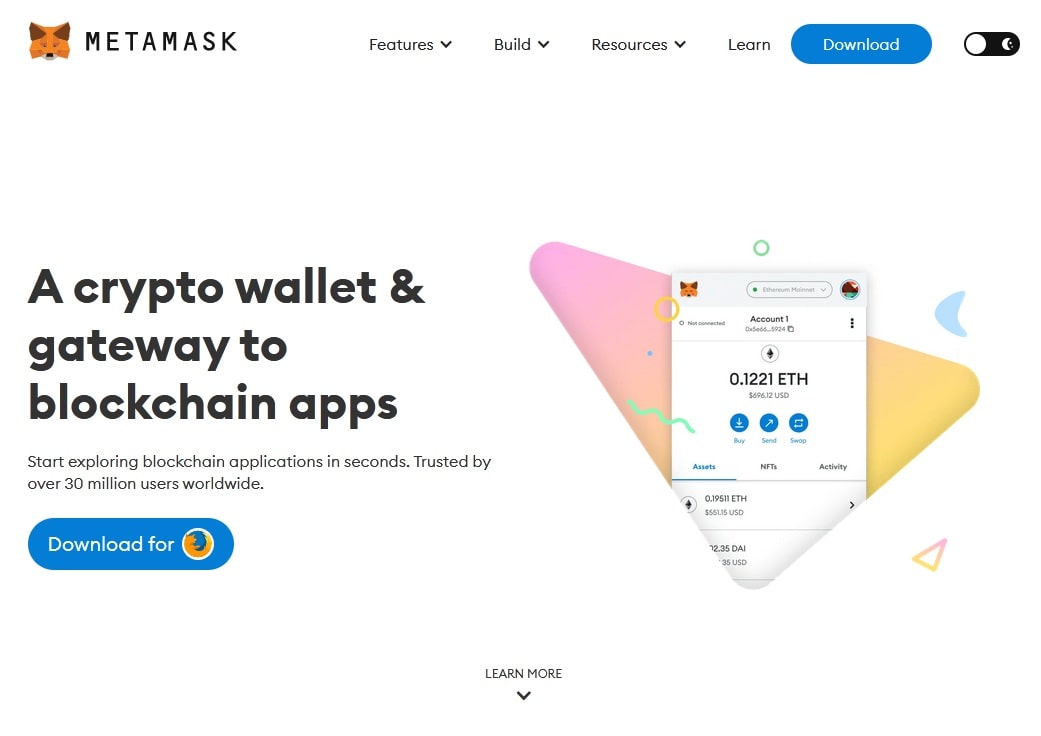
Trust Wallet
An open-source multi-currency crypto wallet that supports many cryptocurrencies. Available both for mobile devices and as a browser extension. It allows a number of cryptocurrencies to be staked and some to be purchased with a bank card. The wallet has a built-in Web3 browser allowing users to access dApps. Considered one of the most secure wallets.
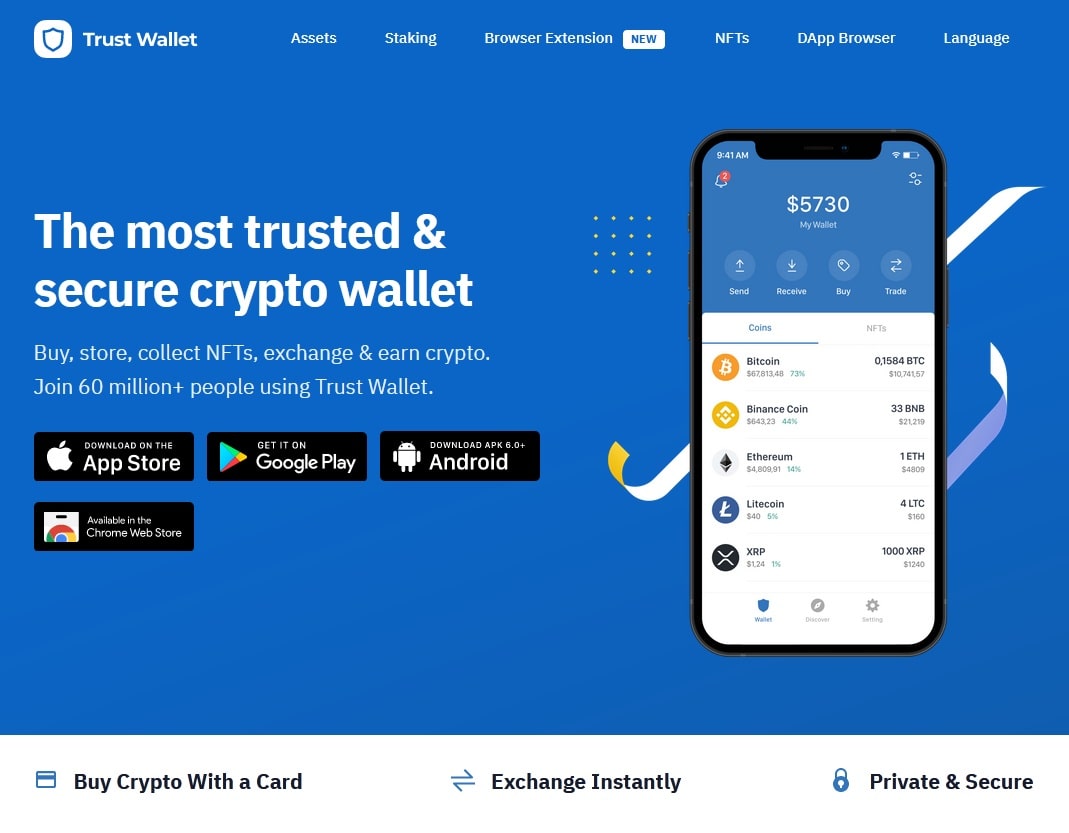
MyEtherWallet (MEW)
An open-source, client-side interface for interacting with the Ethereum blockchain. Supports all ERC-20 tokens, allows users to interact with popular hardware wallets and work with dApps. In addition, it offers cross-chain swaps and allows users to cash out Ethereum for euros or Swiss francs. Available for browsers and mobile devices.

Coinbase Wallet
Launched by the cryptocurrency exchange of the same name, this wallet has an intuitive, user-friendly interface. Available as a mobile app and desktop Chrome browser extension. The wallet supports Ethereum and all EVM-compatible networks. The mobile app also supports Bitcoin, Dogecoin and Litecoin. Having a Coinbase account is unnecessary to use the wallet, but if you do, you can link it to the wallet. The most noticeable disadvantage of this wallet is the closed source code.
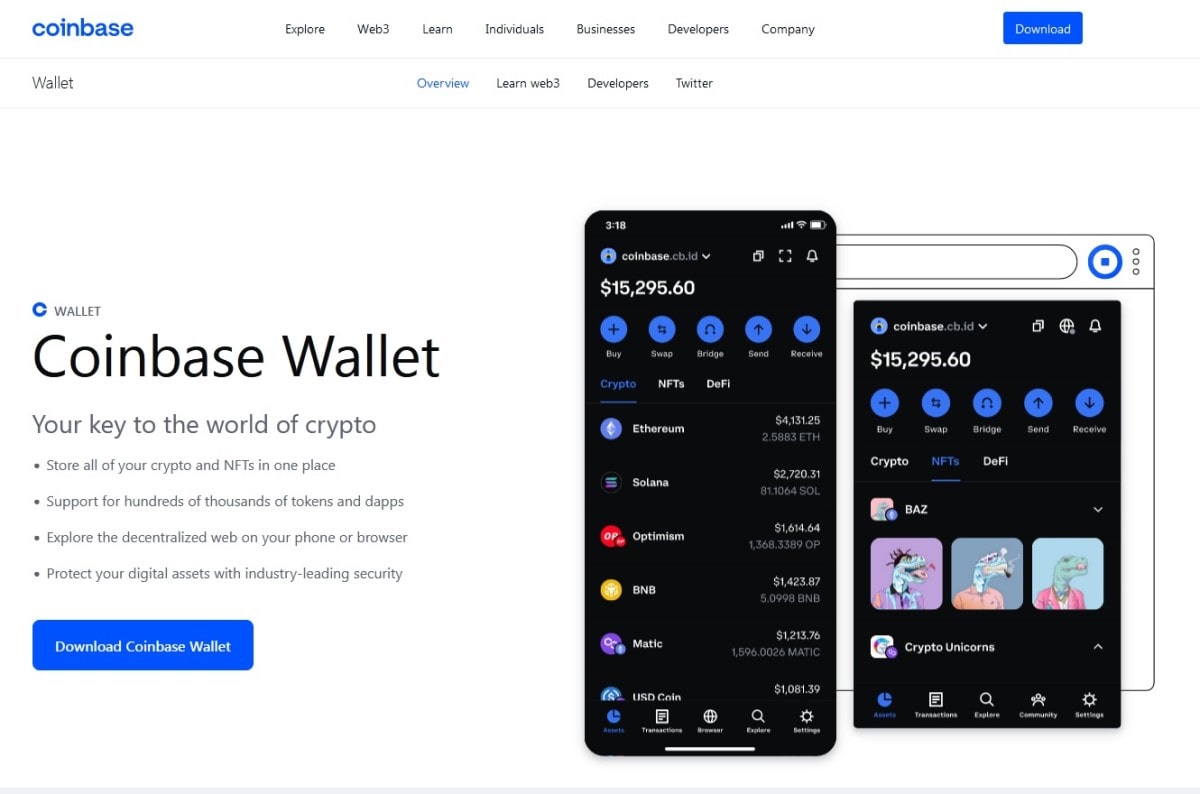
Exodus
A convenient multi-currency wallet with a simple interface. Supports over 260 cryptocurrencies, including Bitcoin, Ethereum, Litecoin, XRP, Monero, etc. Available as a desktop, mobile app and browser extension. The main drawback is the same as with the previous wallet: closed source code.
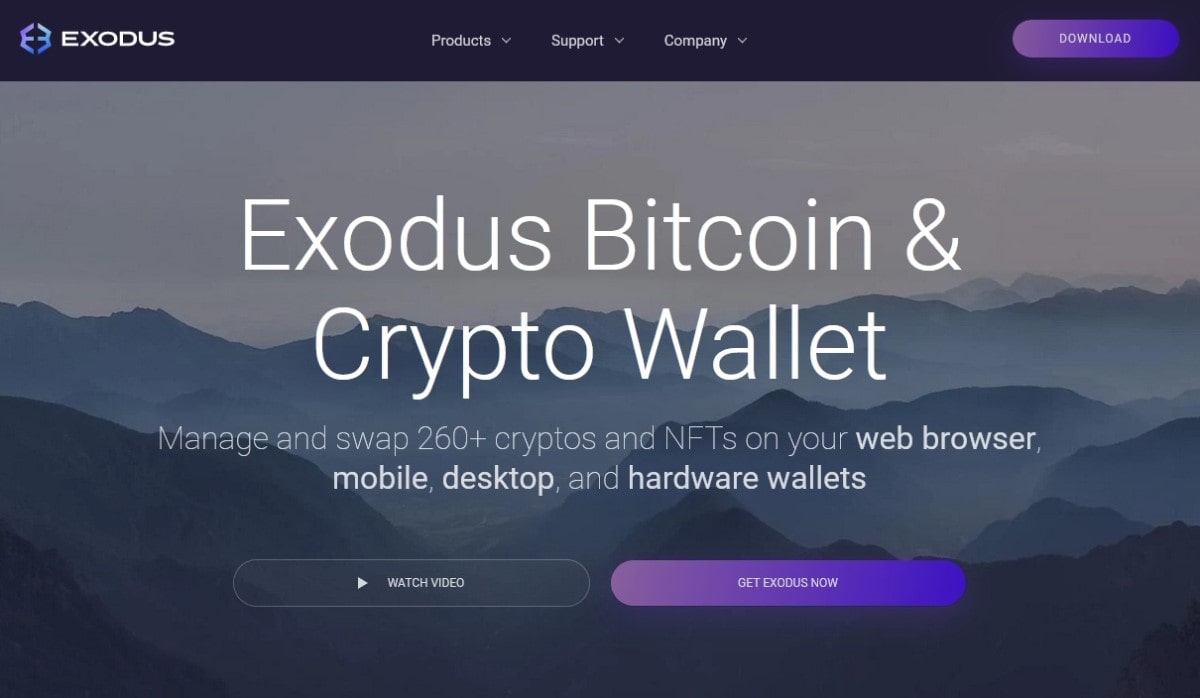
Best hardware crypto wallets
Hardware crypto wallets are also decentralised. The difference between hardware wallets and software ones is that a special device is used for cold storage of cryptocurrency and offers the highest level of security.
The following hardware wallets are currently considered the best:
- Ledger Nano X. Bluetooth-enabled hardware wallet, which supports over 1,100 crypto assets, including Bitcoin, Ethereum, XRP, Litecoin and others. It also offers staking of crypto assets. Allows the installation of up to 100 applications at a time. Compatible with Android and iOS.
- Ledger Nano S Plus. One of the best hardware wallets in terms of value for money. Provides the same high level of security and most features as the Ledger Nano X, but at a much lower cost. This model doesn't feature Bluetooth support, so it's more suitable for those who don't need quick access to assets.
- Trezor Model T. This model is considered one of the safest ways to store cryptocurrency. It supports over 1,000 crypto assets. The process of setting up the device is simple. The disadvantage is the relatively high price.
What is the most reliable crypto wallet?
Hardware wallets are considered the most reliable and secure method of storing cryptocurrency. However, it must be remembered that even a hardware wallet doesn't provide a complete guarantee that your funds are safe. Regardless of which wallet you choose, there are some important safety rules to follow.
First and foremost, always keep your private keys secure. This means storing them in a safe place and never sharing them with anyone. Additionally, use two-factor authentication whenever possible, and be wary of phishing scams that may try to steal your login information.
Another important safety measure is to keep your software up-to-date. This includes both your wallet software and any operating systems or applications you use to access your wallet. Keeping your software up-to-date helps ensure that you have the latest security features and bug fixes.
Finally, it's better to avoid putting all of your cryptocurrency in one place. Spread your funds across multiple wallets or exchanges to minimise the risk of losing everything if one wallet or exchange is compromised.
Tags
Try our Bitcoin Cloud Miner and get additional crypto rewards based on your trading volume. It's immediately available upon registration.
Try our Bitcoin Cloud Miner and get additional crypto rewards based on your trading volume. It's immediately available upon registration.



